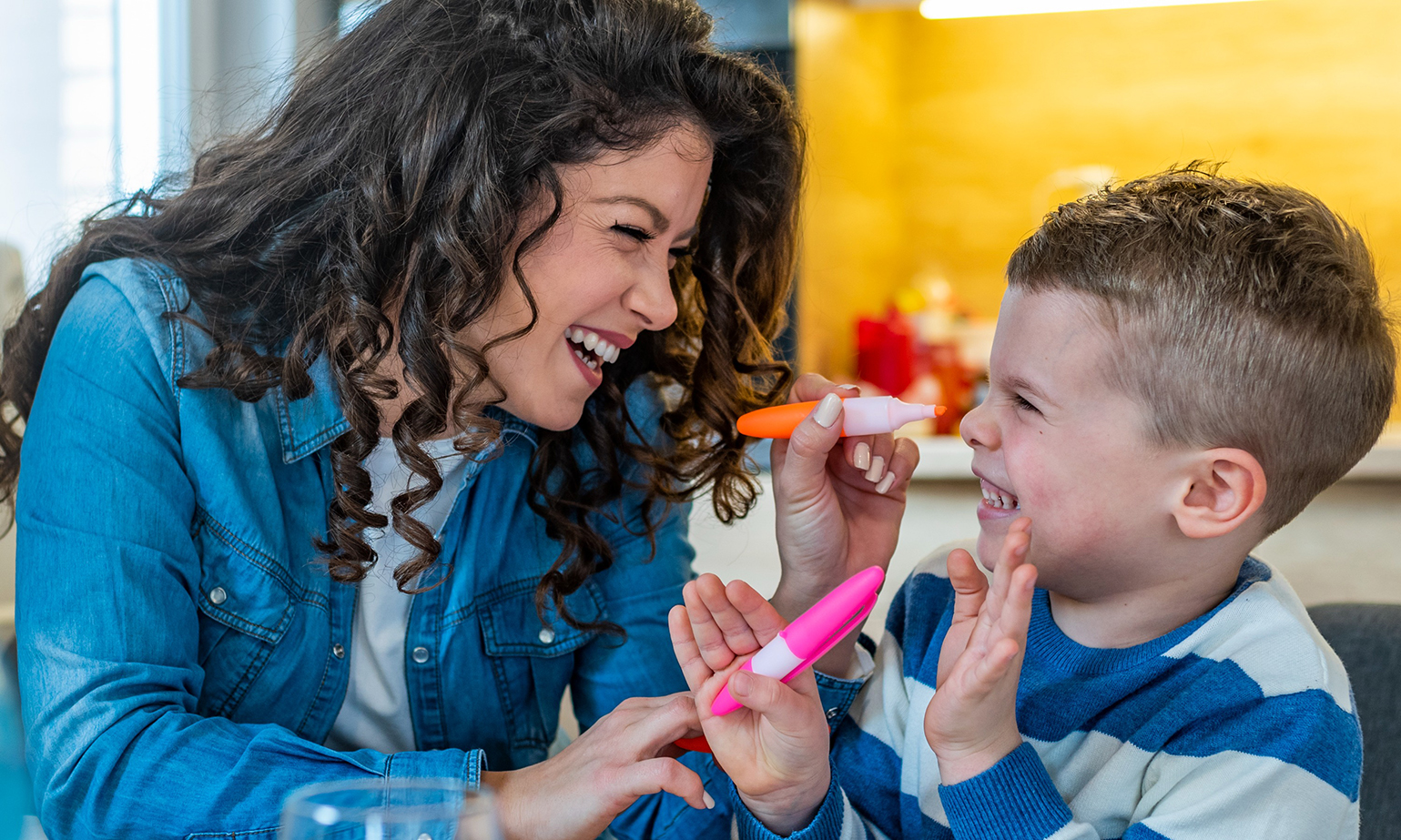Last Updated on December 26, 2023
There is no one-size-fits-all answer to parenting a child with ADHD and autism, but there are some general guidelines that can be followed. The most important thing is to understand your child’s unique needs and how best to support them. Here are some tips on how to parent a child with ADHD and autism:
1. Be patient and understanding: Children with ADHD and autism can be easily overwhelmed by everyday life. It’s important to be patient with them as they learn to cope with their condition. Being patient and understanding is crucial for children with ADHD and autism, especially during their academic years. These children may encounter learning challenges that their peers without these conditions do not experience, such as difficulties with attention and organization. Therefore, exploring how does ADHD affects learning in children and doubling patience in the academic context is essential to create an environment conducive to their educational success.
2. Encourage communication: Help your child communicate their needs by providing them with alternative methods of communication, such as picture boards or sign language. This will help reduce frustration levels for both you and your child. You can also admit them to the Chinese classes for children with autism. It can help them find like-minded people and communicate properly.
3. Promote social interactions: Join a local support group or find other families in similar situations so that your child can interact with others who understand them. Socializing will help your child develop essential skills and build self-confidence.
4. Structure the environment: A chaotic environment can be overwhelming for a child with ADHD and autism. Create a daily routine for your family and stick to it as much as possible.
- Understand your child’s diagnosis: It is important to first understand your child’s specific diagnosis in order to better tailor your parenting approach
- Each child with ADHD and autism is unique and will require a different treatment plan
- Seek professional help: Once you have a general understanding of your child’s condition, it is important to seek professional help in order to create an individualized treatment plan
- This may involve meeting with a developmental pediatrician, psychologist, or other mental health specialist
- Learn about evidence-based treatments: There are many evidence-based treatments available for children with ADHD and autism, such as behavior therapy, medication management, and social skills training
- It is important to learn about all of the options available in order to make the best decision for your child
- Implement the chosen treatment plan: Once you have selected a treatment plan, it is important to stick to it as closely as possible
- This may require making lifestyle changes, such as altering your home environment or routine, in order to support your child’s needs
- Be patient and supportive: Parenting a child with ADHD and autism can be challenging at times, but it is important to remain patient and supportive throughout the process
- Remember that every child progresses at their own pace and celebrates even small successes along the way!

Credit: www.helpguide.org
How Do You Calm an Autistic Child With Adhd?
There are a few things that you can do in order to calm an autistic child with ADHD. One of the best things that you can do is to provide them with a routine. It is important that they have a set schedule for their day so that they know what to expect.
This can help to minimize any meltdowns or tantrums that may occur. Another thing that you can do is to create a safe space for them. This should be a place where they feel comfortable and can go to if they are feeling overwhelmed.
Finally, you should make sure to provide them with plenty of outlets for their energy. This could include things like providing them with toys to play with or letting them run around outside. If you follow these tips, it should help to calm an autistic child with ADHD.
How Does Someone With Adhd And Autism Act?
There is no one-size-fits-all answer to this question, as people with ADHD and autism can vary greatly in terms of their symptoms and behaviors. However, there are some commonalities that are often seen in people with both conditions. For example, people with ADHD and autism may struggle with impulsivity, hyperactivity, and/or difficulties with executive functioning (e.g., planning and organization).
They may also have difficulty with social skills and communication, and may be hypersensitive to certain sensory stimuli. Additionally, many people with ADHD and autism have a higher than average rate of comorbid mental health conditions, such as anxiety or depression.
What Can Parents Do to Help Their Child With Adhd?
There are many things that parents can do to help their child with ADHD. The most important thing is to be supportive and understanding. It is also important to provide structure and routine for the child.
This can help them to stay on track and focused. Additionally, parents can help their child by providing positive reinforcement when they display positive behavior. Finally, it is important to avoid punishment or criticism when the child does not meet expectations.
Instead, parents should work with their child to find alternative solutions.
How Do I Parent a Child With Adhd?
There is no one answer to this question since every child with ADHD is different and will therefore require a different parenting approach. However, there are some general tips that may be helpful in parenting a child with ADHD.
Firstly, it is important to be patient and understanding with your child.
They may often act impulsively or have difficulty paying attention, but this does not mean that they are deliberately trying to misbehave.
Secondly, you need to be consistent with your expectations and rules. This will help your child feel secure and know what is expected of them.
Thirdly, it is important to provide structure for your child. A daily routine can help them feel more settled and less overwhelmed by the day-to-day chaos.
Fourthly, regular exercise can be beneficial for children with ADHD as it can help to release excess energy and improve focus and concentration.
Finally, make sure you take time for yourself too. Parenting a child with ADHD can be challenging and exhausting so make sure you have a support network in place to look after yourself too.
How To Parent A Child With ADHD When You Have ADHD Yourself (w/ Elaine Taylor-Klaus)
Parenting a Child With High-Functioning Autism
Parenting a child with high-functioning autism can be both rewarding and challenging. On the one hand, your child may be highly intelligent and have a great capacity for learning. On the other hand, they may also have difficulty with social interactions and communication.
Here are some tips for parenting a child with high-functioning autism:
1. Be patient and understanding. Your child may not always understand what you say or how you feel, but that doesn’t mean they don’t love you.
Just keep communicating with them and be as patient as possible.
2. Encourage their interests. Many children with autism have very specific interests, which can be a great strength! encourage your child to pursue their interests and learn as much as they can about their favorite subjects.
This will help them build confidence and self-esteem.
3. Help them develop social skills. Social skills can be difficult for children with autism, but there are many ways to help them improve in this area.
Try joining a social skills group or signing up for an activity that requires teamwork, such as sports or drama club.
Conclusion
Many parents of children with ADHD and autism feel like they are alone in their parenting journey. However, there are many resources and support groups available to help parents of these special needs children. Here are some tips on how to parent a child with ADHD and autism:
1. Be patient: Patience is key when parenting a child with ADHD and autism. Children with these conditions can be easily overwhelmed and need time to process information.
2. Create routines: Having a set routine will help your child feel more comfortable and secure.
Knowing what to expect each day will help reduce anxiety and meltdowns.
3. Find support: There are many other parents out there who understand what you’re going through. Seek out support groups or online forums so you can connect with others who can offer advice and support.

